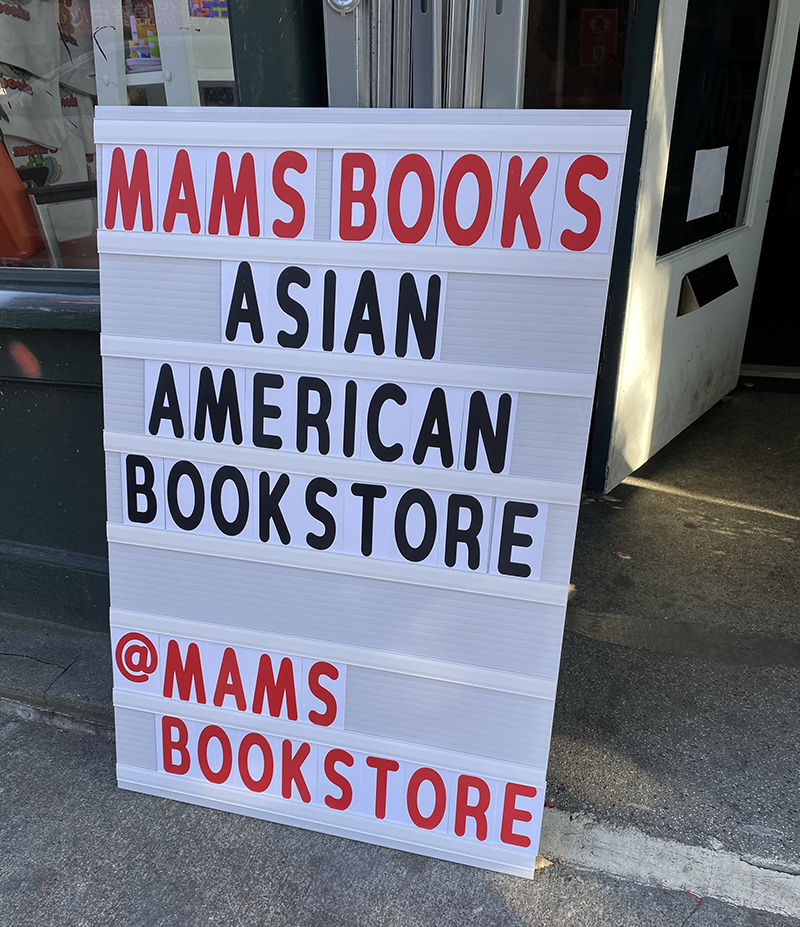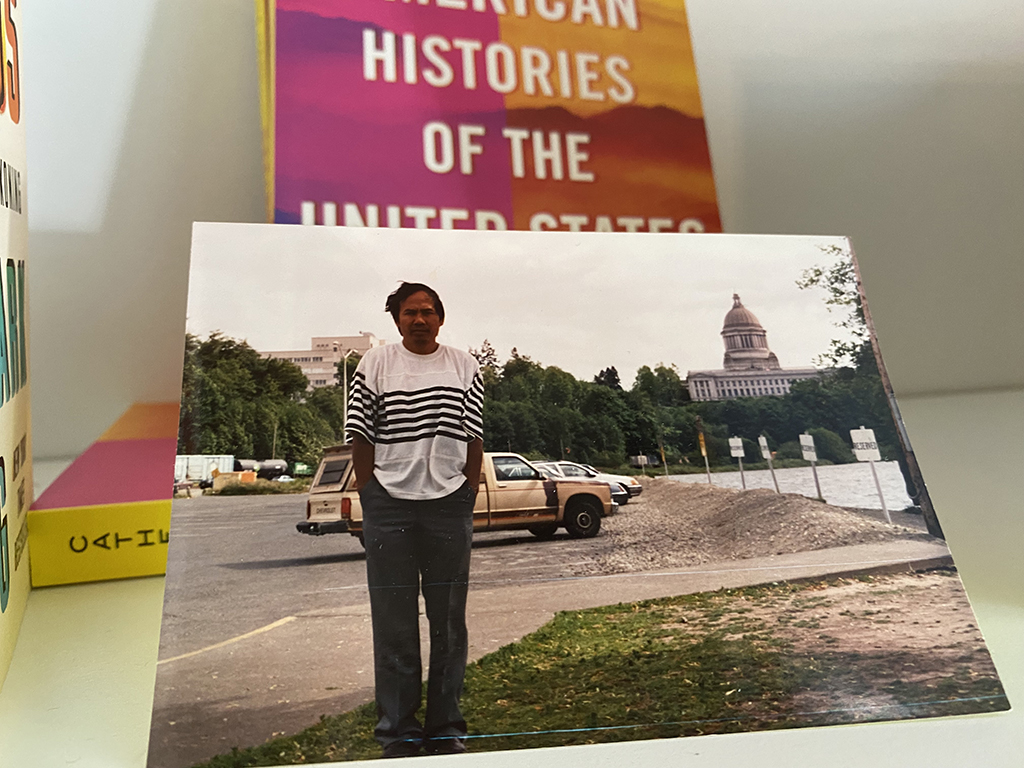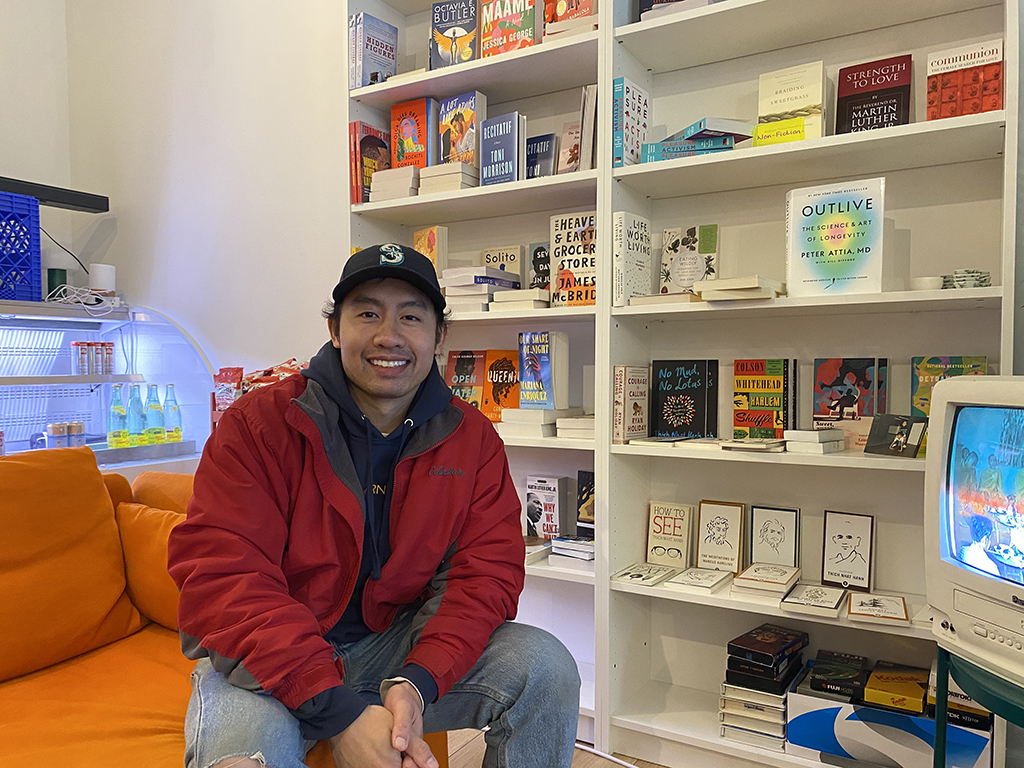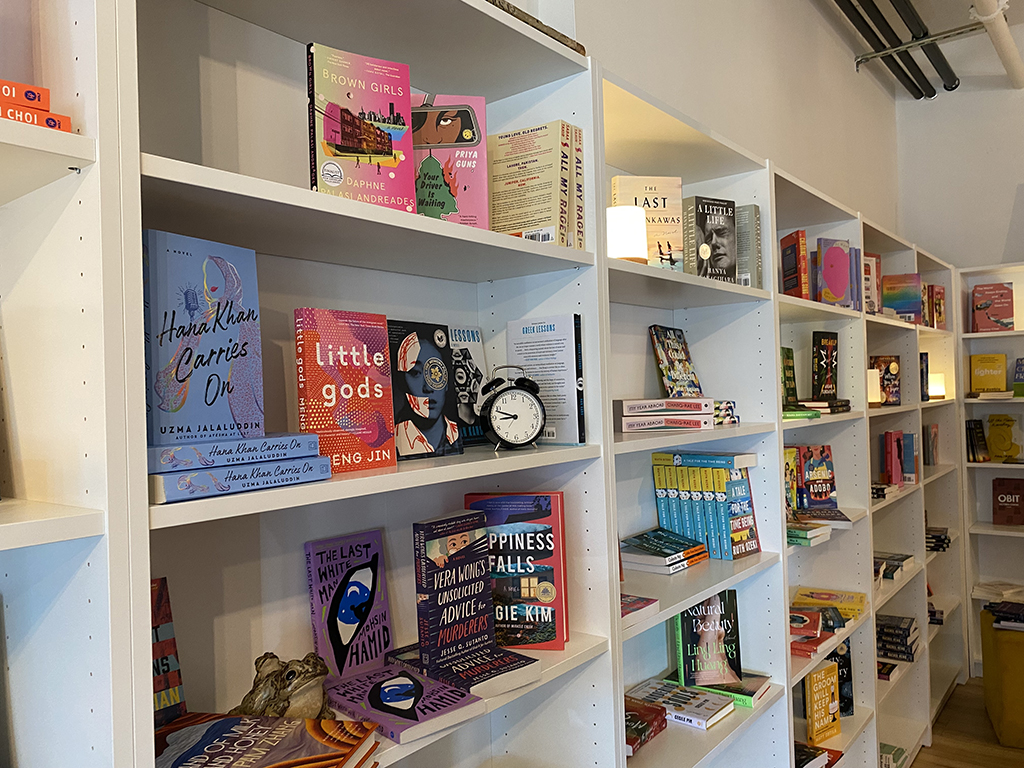By Samantha Pak
NORTHWEST ASIAN WEEKLY
Cambodian-owned businesses in the Puget Sound area are few and far between, but one more has recently been added to that list, and it’s here to serve the Asian community as a whole.
Mam’s Books in the Chinatown-International District opened at the end of September and is the region’s first independent Asian American-owned bookstore. The store also specializes in selling books by authors of Asian descent—with a focus on stocking stories by and about more underrepresented communities within the diaspora because as owner Sokha Danh puts it, “someone has to do it.”

Mam’s Books is the first and only independent Asian American-owned bookstore in the Puget Sound area.
It took about three years for Mam’s to become a reality, from an idea to the fruition of a physical space. The genesis for the bookstore came from Danh’s parents, who prioritized education—and to whom the store is dedicated (the store is also named in honor of his father, Mam).
“We didn’t have any family vacations, but we went to the library,” Danh said, adding that the latter was accessible, free, and kept him and his siblings out of trouble.
As the second youngest out of seven kids—and the youngest male—Danh was the first in his family to be born in the United States after his parents and older siblings emigrated from Cambodia following the Khmer Rouge. They first arrived in Louisiana and moved to Washington state in 1992, when Danh was 3 years old. The family first stayed with other Khmer families in Aberdeen and Tacoma before they were able to find a place of their own in Seattle’s White Center neighborhood, which is where Danh, now 34, grew up.
A bookstore for the community, informed by the community
Mam’s is his first storefront business. Prior to this, Danh, who received a business degree from Seattle University, has worked for the Seattle Chinatown International District Preservation and Development Authority, which allowed him to see the neighborhood through its struggles and triumphs.
“It was very powerful to me,” Danh said about the experience.
He continues to work in the neighborhood, and not just at Mam’s. The bookstore is currently only open Friday afternoons and on weekends. Throughout the rest of the week, Danh works at his day job as the Chinatown-International District community capacity advisor for the city of Seattle’s department of neighborhoods.
Mam’s combines Danh’s educational background with his desire to make a positive social impact. Through the bookstore, he wants to do his part in keeping the neighborhood special and honoring its history. In addition to stocking books mostly by and about the Asian diaspora (about 5% of the books are by BIPOC authors and/or cover topics Danh feels are important to the community such as mental health and spirituality), his goal for Mam’s is to be very intentional in creating a gathering space and sense of belonging for the community—to be part of the beautiful ecosystem of Chinatown-International District. So Danh is very open to hearing from the community to learn what they want to see on the shelves and how they want to use the space. And so far, he said things have been going great in the weeks he’s been open.
“It’s been amazing seeing, in particular, young Asian American families come in,” Danh said, adding that he also eventually wants to expand the store’s hours.
A place to call home
In addition, Danh is partnering with and bringing in fellow Asian American creators from the community with the plan to host about two pop-ups a month. The goal of the pop-ups is for members of the Asian American community to support each other and help each other thrive.
Cambodian American artist Ammara Touch recently had a pop-up at Mam’s to sell her art and plant-based medicines. She’d connected with Danh through other Cambodian community organizations and learned about Mam’s through social media. Touch said because Khmer folks are more scattered throughout the Puget Sound, there are so few spaces for them to gather. So to have Mam’s, a space for not just the Asian community, but also the Khmer community, makes her very glad the store exists.
“It feels really special because there’s so many possibilities of what we can do here,” Touch said. “It feels like somewhere you can call home.”






